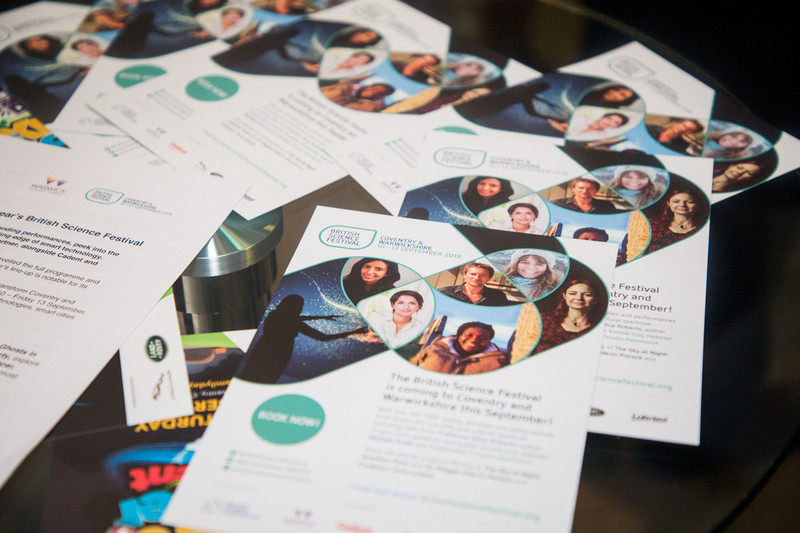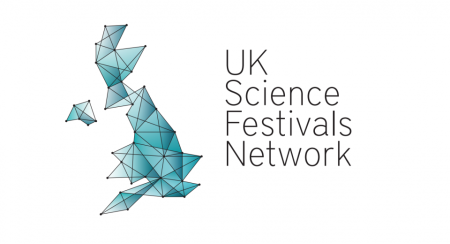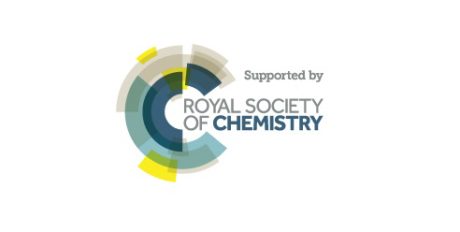Who works for science festivals? Looking back at 2019 through a 2020 lens
19th November 2020 |
By Anna Woolman, Engagement Manager – British Science Association
Since 2018 the UK Science Festivals Network (UKSFN) has sought to understand the sector’s workforce. Results from the 2019 ‘Volunteer and employee’ survey highlight areas to investigate further.
Science festivals bring science out of its silo, making it more accessible for the public. Acknowledging the differences amongst our audiences is the first step to making science relevant to a larger number of people. This in turn can be used to pro-actively champion Equality, Diversity and Inclusion (EDI) in the science engagement sphere.
Role modelling is a key factor in audiences seeing something as ‘for them’. Because of this, in events, a lot of focus has been on improving representation of those ‘on the stage’ – the people giving the talks, doing the performances and making audiences say ‘wow’. As an example, ‘manels’ – all-male panels – are no longer seen as acceptable in most contexts and groups like Manel Watch are ready to call them out.
Of course, representation on the stage and amongst audiences is important, but we cannot, and should not, stop there.
To truly embed EDI principles into ways of working, representation has to reach every corner of the process. Therefore, to approach issues of representation in events effectively we must take a multifaceted approach. We must look at those on the stage, in the audience and working behind the scenes – such as those programming the content, ticketing the events and doing the tech. To understand the backgrounds of the sector’s ‘support staff’, the UKSFN has been surveying its members’ workforces since 2018.
Learnings from the British Science Association’s ‘Where is science communication now?’ 2014 report helped shape survey questions about staff and volunteers’ gender, ethnicity, disability, sexual orientation, education and more. Questions were included to understand socioeconomic background based on guidance from the Civil Service. The latter is a major contributor to people’s job prospects and something that had not, to our knowledge, been formally looked at specifically in the science engagement sector before. NB: The Royal Society and Panic! It’s an arts emergency have highlighted issues around under-representation of those from certain socioeconomic backgrounds working in science and the arts respectively. Arts Council England is also including a question on socioeconomic background for the first time in its 2020 workforce survey.
Key results from the 2019 survey, which had 586 respondents from 33 festivals, are below:
- Gender: The workforce is dominated by women (64%), a trend reflected in the wider voluntary sector where, despite having a majority female workforce, those ‘at the top’ (i.e. Trustees, CEOs, Senior Management, etc.) are still mostly male. We do not know if this is the case in science festivals and engagement more broadly.
- Education/Qualifications: Many highly educated people work in the sector. The majority have a first degree or higher (90% compared to 27% of the general population in the 2011 census). This might reflect how people find out about science engagement and festivals – the assumption being they have completed or are currently undertaking a science degree. Not asking for a degree when recruiting can be an initial step in opening up sector roles to a wider number of people.
- Socioeconomic background: When the results of the three questions asked were taken together (school type, eligibility for free school meals and their household’s main/highest income earner’s occupation at age 14) they suggest the majority of the sector’s workforce comes from relatively comfortable socioeconomic backgrounds. We will continue to measure this aspect of the sector’s workforce and include an additional question asking respondents their parent’s/guardian’s highest qualification in the next survey, as per the 2020 Wellcome DAISY guidelines.
- Ethnicity: People from Black ethnic backgrounds are the most under-represented in the science festival workforce; 1% of respondents stated their ethnicity as Black compared to 3% of 2011 census respondents. In total, 6% of the science festival workforce identified as being from Asian ethnic backgrounds (compared to 8% of 2011 census respondents), although when volunteers and employees are looked at separately, 9% of science festival volunteers identified as being from Asian ethnic backgrounds compared to 3% of employee respondents.
- Disability: 7% of survey respondents considered themselves to have a disability compared to 18% of 2011 census respondents who stated they had an activity-limiting condition. It is important to note that the definition of disability in the 2011 census is different to that of this survey (in line with demographic data collection best practice), so direct comparisons cannot be drawn.
- Sexual identity: A higher number of respondents identified as a Gay man/woman (6%) and Bisexual (8%) compared to the UK population (1% and 1% respectively, 2017 ONS UK data). This was also the question with the highest proportion of respondents preferring not to say.
- Religious belief: Most respondents said they had no religion (63%), a substantially higher figure than in the 2011 census (25%)
But where does this work stand in light of the current COVID-19 pandemic?
We had planned to dig deeper into some of the questions thrown up by the 2019 survey in our 2020 edition. Yet, with this year seeing many large-scale events cancelled and the science festivals sector on the brink of the unknown, it became apparent that there wouldn’t be a workforce to survey for a while. We are hopeful that it will be able to resume in 2022.
If the pandemic alone is anything to go by, where in the UK COVID-19 patients are disproportionately from Black, Asian or Minority Ethnic backgrounds and the COVID-19 mortality rate in the most deprived areas in England is double that of the least deprived, the urgency to address the issues of opportunity and access for under-represented groups is more apparent than ever.
The Network will continue to conduct and champion EDI work amongst science festivals. We will continue to survey our festival workforces and ensure important conversations, which can lead to action, around EDI are had. The results of this survey show a snapshot of the pre-pandemic UK science festival scene. Individually, festivals will have their own areas of success and improvement. Importantly, the large-scale buy in from festival organisers and their workforces shows a strong sector-wide desire to be moving forward on these issues.
We cannot let the current momentum around inclusion and representation lose pace. Across Charity and the Arts sectors, organisations such as A New Direction, Creative Society and Charity So White, to name a few, are pro-actively challenging the status quo. Continually learning from each other, trialling new ways of working and holding ourselves accountable will be key to making progress.
The 2019 UKSFN survey was the first year-long, large-scale look at the sector’s workforce. We are keen to hear people’s thoughts and ideas on how we can move forward in future. Get in touch at info@sciencefestivals.uk to chat.
Useful documents for monitoring EDI can be found below:
- Diversity monitoring data collection: tips and downloadable guidance (Equality, Diversity and Inclusion in Science and Health)
- Measuring socio-economic background in your workforce: recommended measures for use by employers (Civil Service)
- Socio-economic diversity and inclusion: Employers’ toolkit (Social Mobility Commission)
The UK Science Festivals Network is managed by the British Science Association and is supported by funding from UK Research and Innovation (UKRI). Find out more about our broader work on EDI and the steps we are taking towards a more inclusive science engagement sector here.

